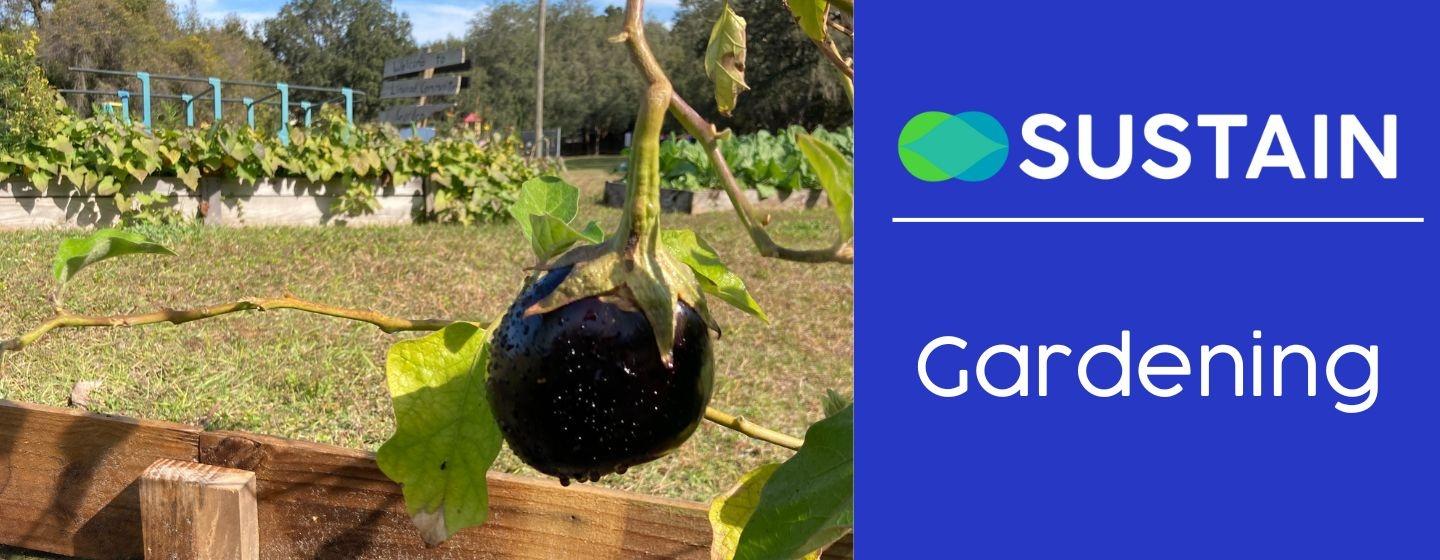Gardening


I often imagine someone from the year 1700 walking into a modern grocery store. The wonder they would feel, seeing the endless aisles of fresh produce: the variety, the colors, the refrigeration, the ease at which the modern world feeds itself. We are so fortunate to live in a time where sourcing food does not dominate our daily headspace. Yet that convenience has disconnected us from the natural production of food.
Gardening is a fantastic way to reconnect to our food – and to nature. Growing food takes time, money, patience, knowledge, and often a bit of luck. Understanding the beauty and fragility of that process renews our appreciation for those fresh fruits and vegetables on the store shelf. It also allows us to understand how food production impacts our environment.
Gardening doesn’t have to be overwhelming. You don’t need $500 worth of tools, a huge backyard, and a deep knowledge of plants to get started. Try these tips:
Start Small
My first attempt at gardening was a potted basil plant on the windowsill. It’s that simple. Your local hardware store likely sells seeds and/or young plants. Grab an old pot, a bag, or soil, and start gardening.
Be Open to Failure
Remember that basil plant I had? It died within a week. It turns out basil likes a lot of sunlight. Be open to failure and learn from it. Move a plant around when it looks sad. Adjust watering schedules. Change the soil. This is the part when you start connecting to the nuances of nature.
Community Gardens
After that basil plant died, I took a hiatus from gardening. I had moved to Tampa and didn’t have the bandwidth to learn about the area's nuances. Then a friend connected me with a community garden.
Most community gardens are open to the public. The growing spaces are typically rented, ranging between $20 - $50 per year. They have all the tools and resources (e.g. compost) you’ll need. Even more important, you’ll have the opportunity to tap into the collective knowledge – and friendship – of the community.
Enjoy your garden!
Did you learn something? Please take a moment to answer our short survey. Follow along with WEDU PBS as we share resources to help you live a more sustainable life. Sign up for our email newsletters to stay up to date with all things Sustain.